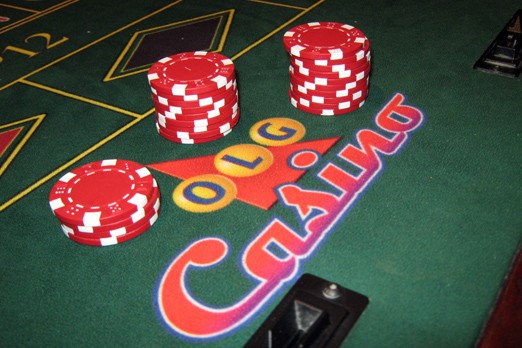A gamble a decade ago has mostly paid out for the city says police, politicians and addictions counsellors as the Thunder Bay Casino turns 10 this week.
Casino manager Tim O’Doherty said he thinks the casino has had a big impact on Thunder Bay. With an estimated $23.8 million taken by the city from its five per cent slot machine revenue to attracting new businesses around the north core, O’Doherty said he thinks the casino has helped the city overall.
"It’s excitement in this community not just inside the building but outside as well," O’Doherty said.
Besides also being a community sponsor, O’Doherty said the casino’s 360 employees contribute to the local economy as well. Although critics say most of the estimated $ 500 million made by the casino in the last decade goes to the province, O’Doherty said that money comes back to Thunder Bay in more ways than slot revenues.
"It does go down to Queen’s Park but those dollars are coming back through the trillium foundation," O’Doherty said, "Through hospitals and schools…I think we’re seeing it come back."
Ken Boshcoff, who was Thunder Bay’s mayor when the casino came to town, said although he thinks it’s helped the city overall, he wishes the city had asked for more of a revenue sharing agreement. But at the time, $25 million a year was going to Grand Portage Lodge and Casino from Thunder Bay gamblers and none of it was coming back to the city. Boshcoff said when a casino was first considered in 1997, Thunder Bay set a record for the lowest number of building permits and was faced with a dwindling Keskus Mall.
"We probably would’ve pushed for more if we had known how great the revenues were," Boshcoff said. "The promise of a charity casino and a percentage of the take was very alluring to not only city council but the community at large."
When the promised addictions counselling came along with the casino it was better than the alternative of seeing problem gamblers head South of the border and receive no treatment.
"I worried about people getting in over their heads but at least now we have the Smith Clinic here helping people with addictions," Boshcoff said. "I guess I can only ask people to be responsible."
Ember Trochimchuck agrees. A gambling addiction counselor at the Sister Margaret Smith Centre, Trochimchuk said the centre is not anti-gambling and realizes that most people use the casino for entertainment.
"It’s about putting those limits around it and keeping it fun." she said. "It’s when people leave the casino feeling horrible feeling down and out, depressed, anxious about all of the money they’ve just lost," she said.
Despite an initial concern about a large spike in crime with the casino, deputy police chief J.P. Levesque said the crime hasn’t hit the area the way people though it would. While an increase in overall activity in the north core has brought more small crime like public intoxication and other disorder problems it’s a result of more people heading downtown he said.
"Certainly not this huge spike that people were anticipating in crime," said Levesque.
Domestic violence and fraud cases have come about as a result of people with gambling addictions though Levesque said.
"Those are the things we’re seeing more so than drawing in real hardcore criminals," he said.
Coun. Linda Rydholm, also a councillor when the casino came, said it’s had its ups and downs for the city.
The most unfortunate thing, said Rydholm, is that the province hasn’t increased the city’s share of revenue, and she estimates about $300 million dollars in casino profits has headed south over the past 10 years.
"Some people have had fun, some people have had sorrow, some people have jobs," Rydholm said. "The provincial government wins with gambling here at our casino."
